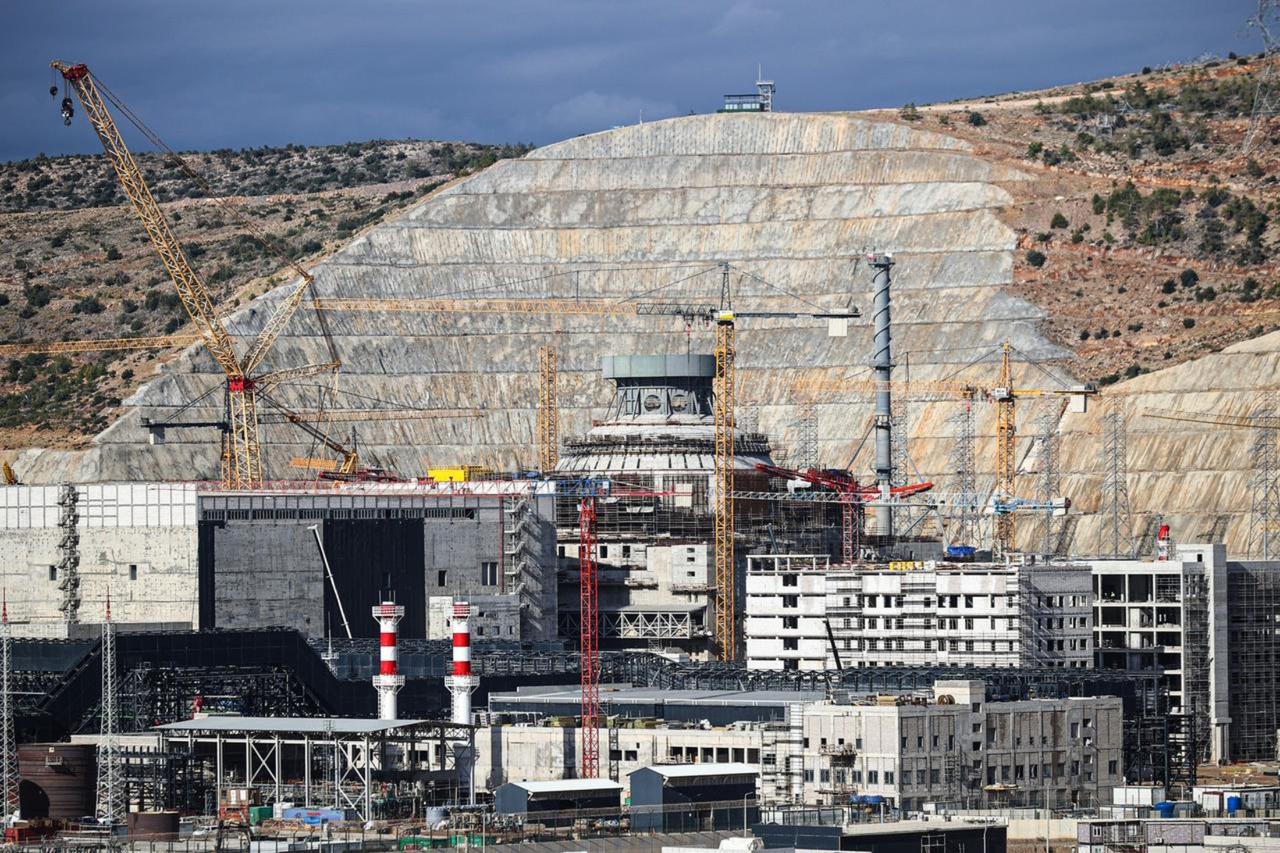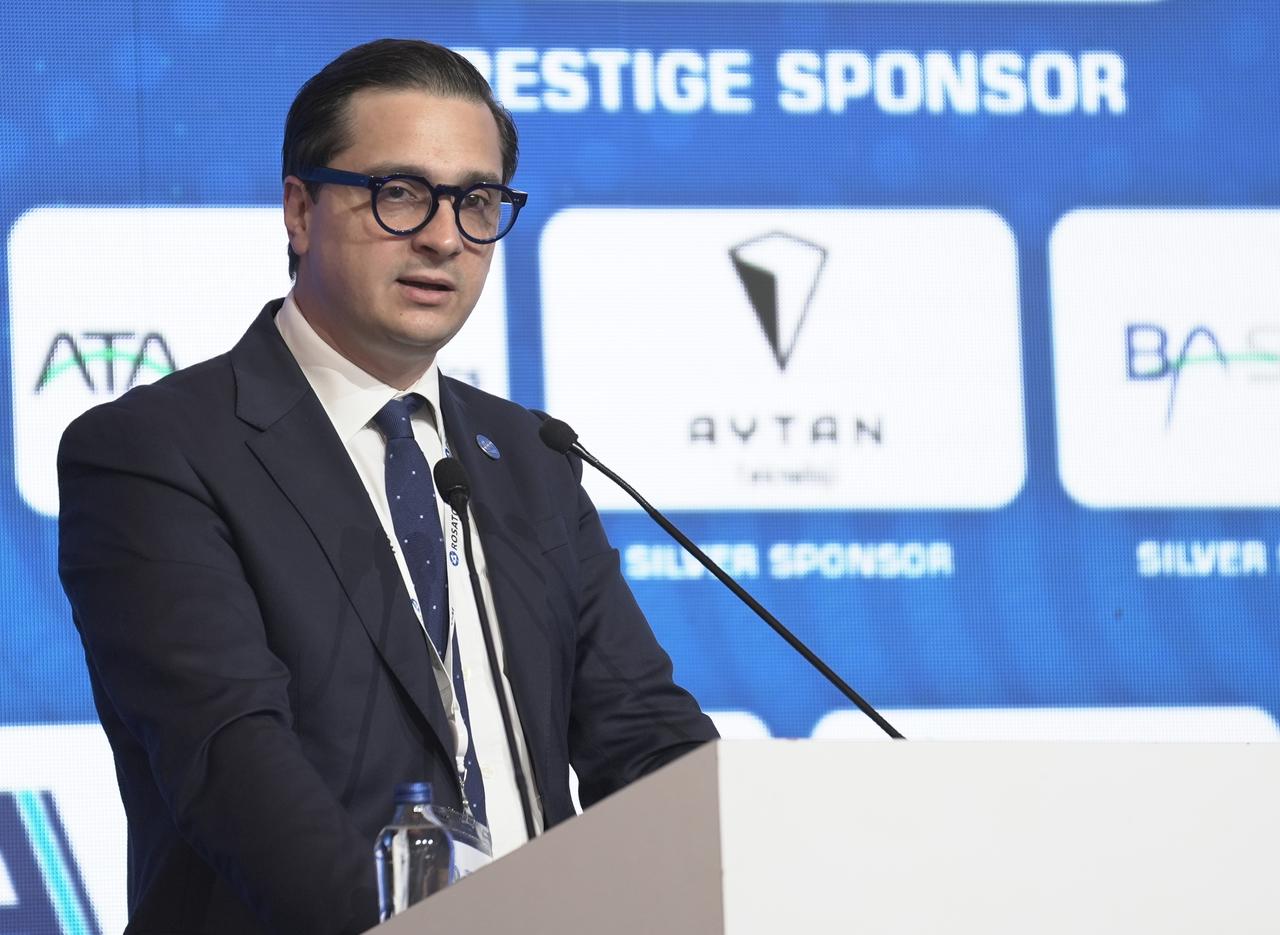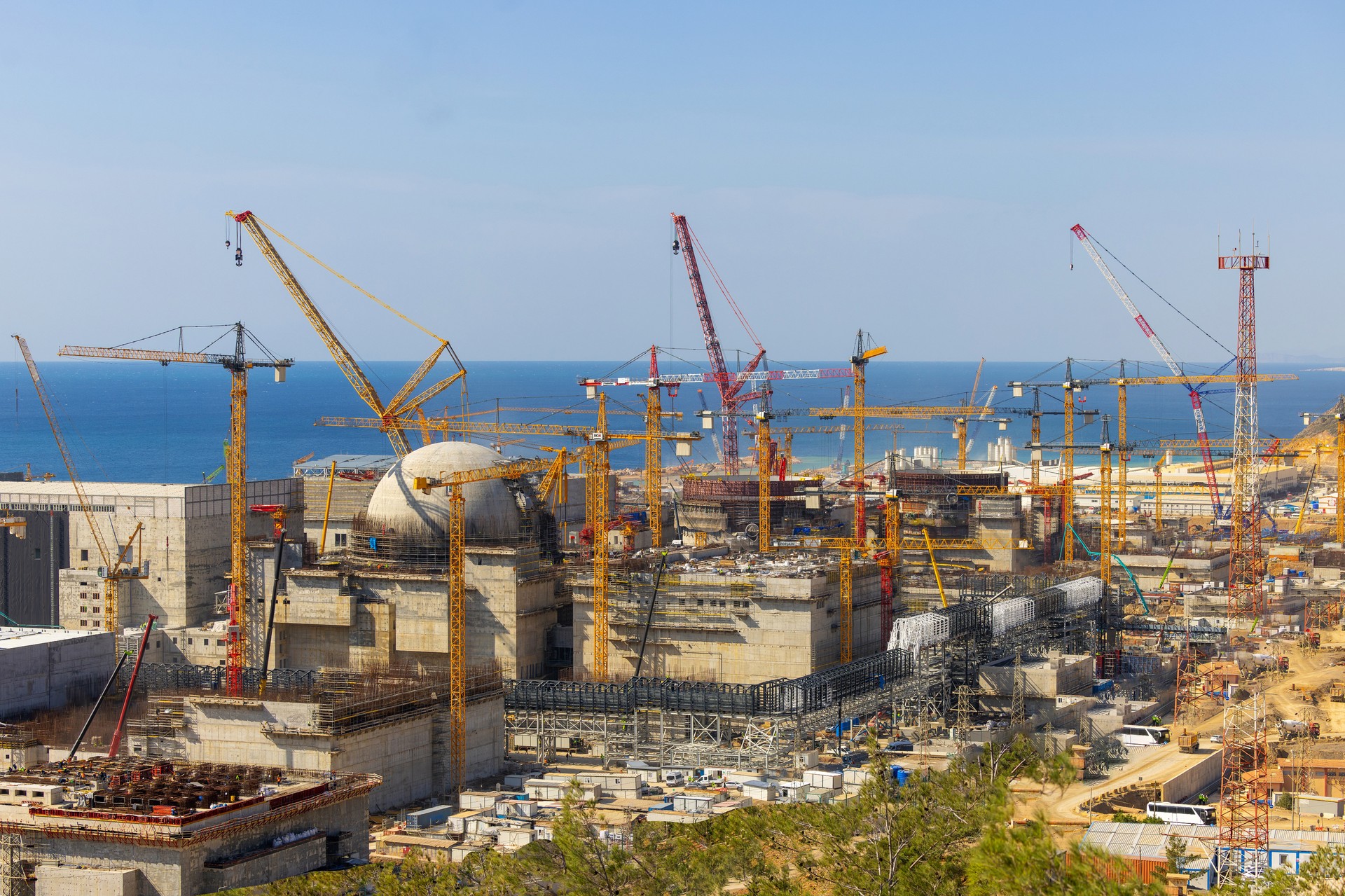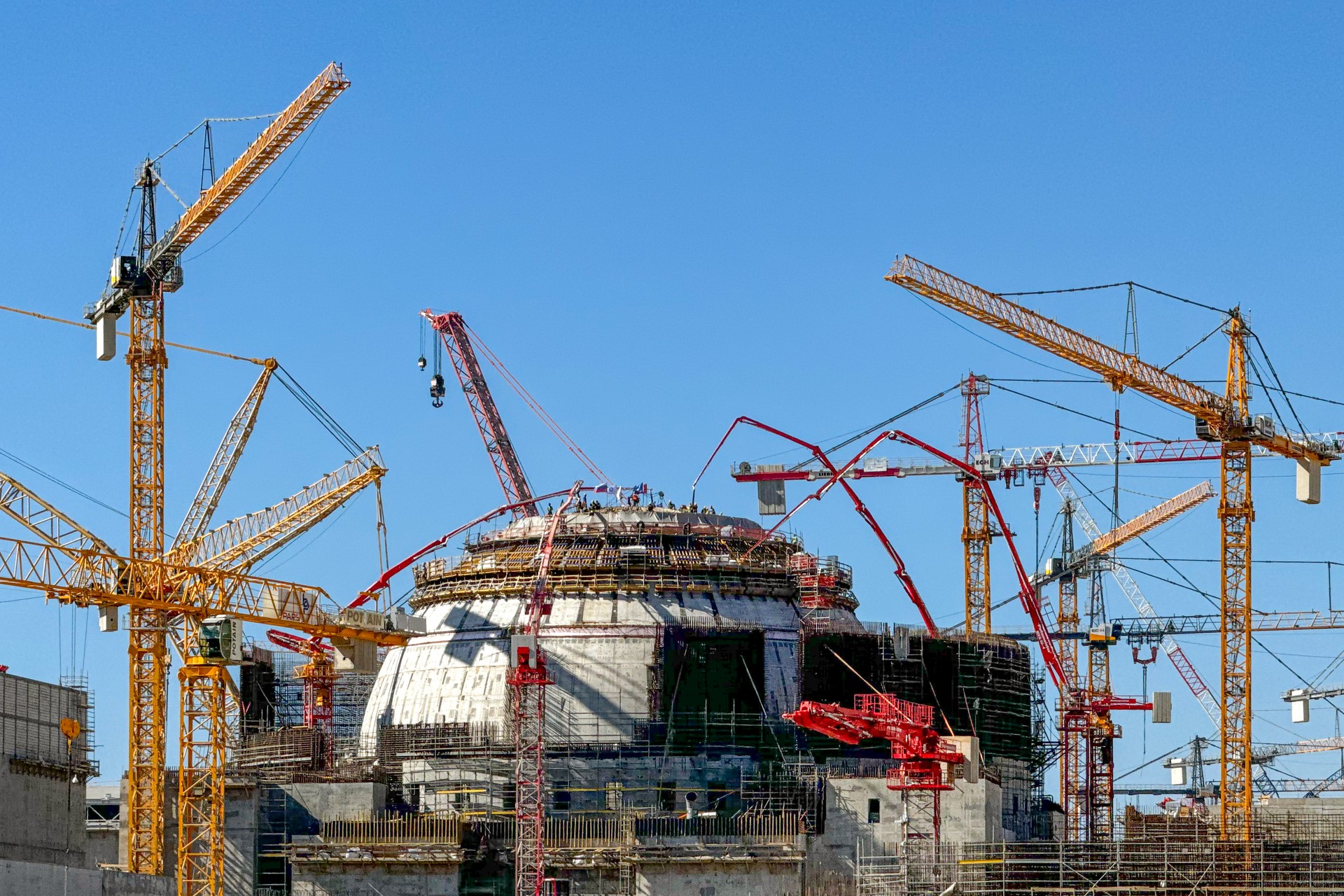
Anton Dedusenko, Chairman of the Board of Akkuyu Nuclear JSC and CEO of Rosatom subsidiary Rusatom Energy International, announced that the commissioning phase has begun for the first unit of the Akkuyu Nuclear Power Plant (NPP), marking a major milestone in Türkiye’s energy strategy.
Speaking to Anadolu Agency at the 11th Nuclear Power Plants Summit in Istanbul, Dedusenko confirmed the completion of general construction and the beginning of testing operations for the plant’s first unit.
"This is a very important phase for a nuclear power unit. Despite some challenges we’ve encountered, everything is progressing on schedule," said Dedusenko.
"We plan to carry out preparations this year to connect the switchyard of Unit 1 to the power transmission system," he added.

Dedusenko noted the project's role in Türkiye's environmental goals, stating: "The Akkuyu NPP project will contribute to reducing Türkiye’s carbon emissions by 20 percent, which is a very significant contribution."
He also highlighted the potential for broader cooperation, particularly in light of negotiations over a possible second NPP project in Sinop: "We have made significant progress with our Turkish partners in recent years. We are ready to present technical and economic feasibility studies this year, though the final decision rests with the Turkish side."
Dedusenko expressed Rosatom’s willingness to collaborate on future nuclear projects in Türkiye: "We are open to exploring opportunities to expand our cooperation and are very positive about Türkiye’s initiative to build new NPPs."
He added that selecting local suppliers for future projects would be key, emphasizing the importance of adaptability and problem-solving capabilities.

Each of Akkuyu's four reactors will generate 1,200 megawatts, with subsequent units expected to come online annually following the activation of the first. Once fully operational, the plant will supply 10% of Türkiye's electricity demand.
The facility has a planned 60-year operational lifespan, extendable by another 20 years.
Türkiye also aims to build large-scale nuclear power plants in Sinop and Thrace as part of its goal to reach 20,000 megawatts of nuclear capacity by 2050.

Salih Sari, Acting Director General for Nuclear Energy and International Projects at the Ministry of Energy and Natural Resources, said international agreements for the Sinop and Thrace nuclear plants may be signed by the end of next year if current conditions are met.
"We expect the Sinop plant to produce its first electricity before 2035, and the Thrace plant shortly thereafter," Sari stated during the summit’s opening session.
He emphasized the necessity of nuclear power in Türkiye’s energy mix: "We can clearly say that nuclear energy is not a choice but a necessity for us."

Sari reported that construction is ongoing at all four Akkuyu units, each with a base-load capacity of 1,200 megawatts. Despite obstacles in financing and supply chains, the project continues with the involvement of over 300 Turkish firms. About 56% of the project's equipment, materials, and services — equivalent to $8.5 billion — are being provided by local companies.
"Our goal is for all four units of Akkuyu to start generating electricity gradually by the end of 2028," Sari said.
Once operational, Akkuyu is expected to generate 35 billion kilowatt-hours annually, placing Türkiye among the world’s top 10 nuclear electricity producers.